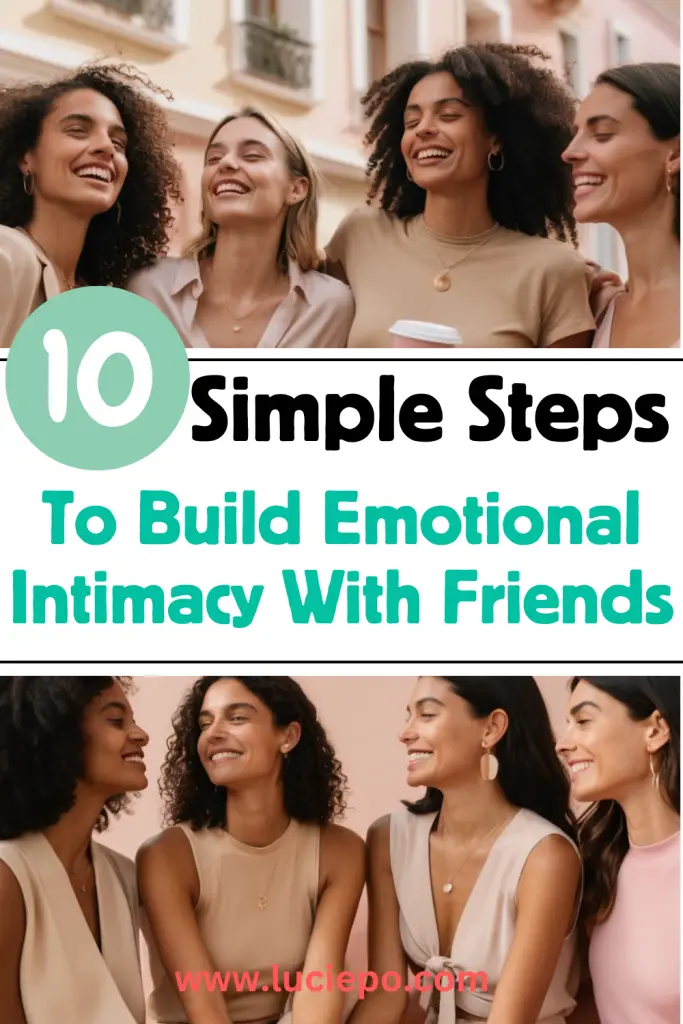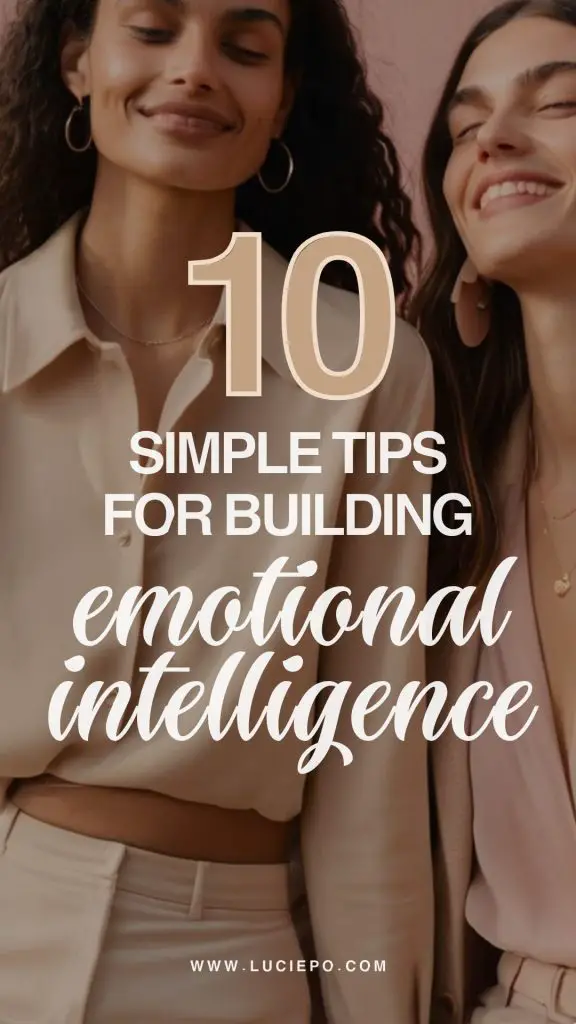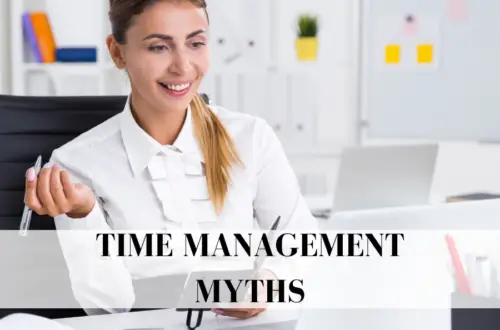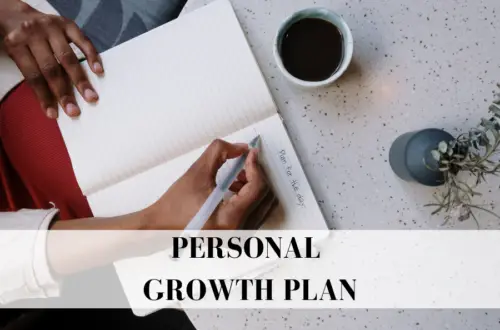
10 Simple Steps To Build Strong Emotional Intimacy With Friends
Hey there, friends!
You know, there’s something truly special about those deep, belly-laugh, finish-each-other’s-sentences kind of friendships. They’re the ones that feel like home. Yet, it’s not just the fun times that cement these bonds; it’s the emotional intimacy with friends – that cozy, secure feeling when you share the real you, the good, the bad, and the messy, with someone who gets it.
I’ve been thinking a lot about this magic ingredient lately. It’s the glue in our closest relationships, yet we don’t always talk about how to nurture it. So, I’ve decided to pull back the curtain and share some heartfelt, tried-and-true tips for weaving emotional closeness into the fabric of your friendships. And don’t worry – I’m all about keeping it real, practical, and relatable.
Whether you’re looking to strengthen your squad or just make sure your bestie knows they’re your person, these tips are your golden tickets. So grab a cup of coffee, settle in, and let’s chat about getting that heart-to-heart connection down to fine art. Trust me, it’s a game-changer for every friendship, from the platonic soulmates to the friends who feel like family.
Ready to dive in? Let’s get started!
1. Recognize the Importance of Platonic Intimacy
Have you ever had that friend who knows exactly when you need a pick-me-up text? Or the one who’s seen you ugly cry and still thinks you’re amazing? That’s platonic intimacy at its finest, my friends. It’s about having someone in your corner who knows your inner world, minus the romantic vibes.
- It’s the Little Things: It starts with the small gestures – a knowing glance across the room, a meme sent at just the right moment, or that silent solidarity when you’re both enduring something tough. These are the building blocks of a bond that can weather any storm.
- Beyond the Surface: Platonic intimacy means you’re not just skimming the surface of “How’s your day?” It’s diving into the “Tell me what’s weighing on your heart” conversations.
- The Secret Sauce: Here’s the kicker – platonic intimacy is about feeling loved for who you truly are. And let me tell you, it’s the secret sauce to feeling understood and accepted.
Friendship is born at that moment when one person says to another, ‘What! You too? I thought I was the only one.
2. Embrace Vulnerability as the First Step
Alright, let’s get real for a sec. Opening up isn’t always easy. It’s like that moment at a pool party when you’re inching towards the cold water, knowing you’ve gotta dive in. Vulnerability is that first step into deeper waters – and yeah, it’s chilly at first, but it’s also where the magic happens.
- Drop the Armor: It’s about showing up without the armor. We’re talking less “I’m fine” and more “I’m a hot mess express today, and here’s why…”
- Trust Fall: Think of vulnerability as a trust fall. You’re leaning back, hoping your friend will catch you. Spoiler alert: They will, and it’ll strengthen your trust muscles like nothing else.
- Embrace the Awkward: Let’s face it, bearing your soul can be as awkward as a giraffe on roller skates. But it’s also as brave as it is awkward, and that’s what makes it beautiful.
So next time you’re teetering on the edge of “Do I share this?”, take the leap. Your friendships will thank you for it, and you’ll be amazed at how deep they can go when you do.

3. Spend Quality Time Together
Queue the board games, pop the popcorn, and get those inside jokes ready – it’s quality time o’clock. In the fast-spinning world we live in, carving out moments to just be with your friends is like finding gold in your backyard.
- Plan It Out: Whip out that planner and make it a date. Whether it’s a weekly coffee catch-up or a monthly hike, get it on the books. It’s the planned moments that often lead to the best memories.
- Unplug to Connect: Drop the screens when you’re together. There’s something about a no-phone zone that says, “You’re my top priority right now.” And that, my friends, is pure gold.
- Shared Experiences: Try new things together. Take a pottery class, start a two-person book club, or cook a fancy dinner. Shared experiences are the glue in your friendship scrapbook.
- Savor the Simple: Remember, quality time doesn’t have to be a grand adventure. Sometimes, it’s those quiet moments on the porch swing or those heart-to-hearts over a shared pizza that mean the most.
- The Power of Presence: Ever heard this one? “The greatest gift you can give someone is your time.” It’s true. Your presence is the most precious thing you can share.
So let’s toast to the hangouts, the catch-ups, and the “just because” moments. They might just be parts of your day, but they’re also the parts that make your friendships richer than chocolate cake.
4. Understand and Respect Boundaries
Navigating the friendship waters is like dancing – it’s all about understanding the steps and respecting each other’s space. Boundaries? They’re not buzzkills; they’re the unsung heroes keeping our friendships healthy and happy.
- Talk It Out: Start by chatting about what’s cool and what’s not. Your friend hates surprise visits? Good to know. You’re not a fan of late-night calls? Put it out there. It’s all about that two-way street of respect.
- Check-In Regularly: People change, and so do boundaries. What worked a year ago might not fly now. So, keep the lines of communication open. It’s like a regular friendship tune-up.
- Respect the Red Lights: If a friend says, “This topic is off-limits,” or “I need some space,” that’s their boundary speaking. Listen to it, honor it, and don’t push it. Red lights are there for a reason.
- Celebrate Differences: Different friends will have different boundaries, and that’s cool. It’s what makes us unique. Like snowflakes, but with personal space.
Boundaries are a part of self-care. They are healthy, normal, and necessary.
5. Cultivate a Safe Space for Emotional Support
Picture this: a fort made of blankets, stocked with snacks, and a no-judgment zone. That’s what a safe space for emotional support looks like in friendship form. It’s where you can be your raw, unedited self, and man, does it feel good?
- Listen Like You Mean It: Sometimes, all a friend needs is to talk it out. So, lend an ear, kick judgment to the curb, and just be there. The power of listening? It’s monumental.
- No Fix-It Fever: Resist the urge to solve every problem. Often, it’s not about fixing; it’s about feeling. So, swap that tool belt for a comfy blanket and just be present.
- Embrace the Mess: We all have messy chapters. So when a friend is in the middle of one, don’t run for the hills. Pull up a chair, grab a mop, and get ready to help them tidy up.
So, let’s make our friendships the kind of places where emotions can run free, and support is as plentiful as the air we breathe. That’s the good stuff, the stuff that sticks.
6. Identify and Speak Love Languages
Ever wonder why that hug from your friend felt like a cloud-nine moment? Or why their help on moving day was a bigger deal than they realized? That’s all about love languages, my friends. They’re not just for romances; they’re for friendships, too.
- Words of Affirmation: Tell your friend they’re killing it at life, and watch them light up. A compliment can be a day-maker.
- Acts of Service: Helping a friend out in a pinch says, “I got your back,” louder than a megaphone.
- Receiving Gifts: That little “I saw this and thought of you” trinket can speak volumes about how much you care.
- Quality Time: It’s about giving your friend your undivided attention. Because in this world full of distractions, focused time is a treasure.
- Physical Touch: A fist bump, a high five, a comforting squeeze on the shoulder – it’s the touch that says, “I’m here for you,” without a single word.
- Mix and Match: Everyone’s different, right? Your friend might appreciate a mix of these, and that’s the beauty of it. It’s a personal thing
Learn and Adapt: Pay attention to how your friends respond to different expressions of affection. Do they rave about the note you left them, or do they keep talking about the coffee you brought over last week? These clues can tell you a lot about their love language.
Communication is Key: If you’re unsure, just ask! A simple “Hey, I was reading about love languages and was curious—what makes you feel most appreciated?” can open up a meaningful conversation.
The Golden Rule, Remixed: Treat your friends how they want to be treated. It’s the golden rule with a twist, and it’s all about personalizing how you show your love.
The most important thing in life is to learn how to give out love, and to let it come in. Let’s not just give love in the way that’s easiest for us, but in the way our friends can receive it best.
7. Engage in Activities with Common Interests
Bonding over shared interests is like adding extra cheese to your pizza – it just makes everything better. Whether it’s geeking out over a book series, sweating it out in a spin class, or crafting the night away, doing stuff together can supercharge your friendship.
- Discover New Horizons Together: Ever tried sushi-making or taken a pottery class? Exploring new activities can be a blast and a half, and you’ll make some hilarious memories along the way.
- Revisit Old Favorites: Sometimes, the best bonding happens over things you already love. Re-watch that series you both adore or hit up your favorite hiking trail.
- Find the Common Ground: Got different interests? No problemo. Find that sweet spot where your hobbies overlap. You might be surprised at what you both enjoy.
- Make It a Regular Thing: Setting up a recurring “friend date” for your shared activities can give you both something to look forward to. Trivia night, anyone?
- The Power of Play: Never underestimate the power of play. It’s not just for kids. A little fun goes a long way in keeping the spark alive in your friendship.
- Shared Successes: Tackle a project together – like running a 5K or building a garden. There’s something about shared goals that just brings people closer.

8. Learn to Navigate Emotional Cheating and Sexual Attraction
Alright, let’s talk about the elephant in the room – or rather, the complex feelings that can sometimes sneak into our platonic friendships. Emotional cheating and sexual attraction can be tricky, but with some savvy navigating, you can keep your friendships healthy and boundaries intact.
- Acknowledge Your Feelings: First up, it’s okay to have feelings. They don’t make you a villain. It’s what you do with them that counts.
- Open Communication: If you’re feeling something more than friendship, consider having an open, honest chat about it. It’s all about being clear and respectful – to yourself and your friend.
- Set Boundaries: Sometimes, setting boundaries is the best way forward. It might mean stepping back a bit or changing how you interact. Remember, it’s for the health of the friendship.
- Seek Outside Perspectives: If you’re in a muddle, chatting with a trusted friend or a counselor can give you some clarity. A little outside perspective never hurts.
- Focus on the Friendship: Remind yourself of what you value in the friendship. Is it the support, the laughs, the memories? Keeping these front and center can help you navigate tricky waters.
- Don’t Ignore It: Sweeping feelings under the rug? Not a great idea. They have a way of popping back up, usually at the worst times.
9. Expand Your Emotional Vocabulary
Ever had a feeling but just couldn’t put a name to it? That’s where expanding your emotional vocabulary comes into play. It’s like adding more colors to your friendship palette – suddenly, you’re able to paint your experiences and feelings in more vivid and accurate hues.
- Emotion Words Are Your Friends: Start familiarizing yourself with more emotional words. The difference between feeling ‘sad‘ and ‘disheartened‘ can be more telling than you think.
- Express Yourself Clearly: The better you can express your emotions, the easier it is for your friends to understand and support you. It’s like giving them the map of your emotional landscape.
- Deepen Conversations: With a richer emotional vocabulary, your conversations can go from surface-level to soul-deep real quick. It’s like unlocking a new level of connection.
- Reflect and Write: Try journaling as a way to explore your emotions. The more you write, the more you understand yourself, and the better you can share your inner world with others.
- Read and Learn: Books, podcasts, and even TED Talks on emotional intelligence can be great resources. The more you learn, the more you grow.
You might enjoy my blog post about the best self-help podcasts. Click HERE to check it out.
10. Seek Expert Advice When Necessary
Sometimes, despite our best efforts, we hit a snag in our friendships that’s just a bit too knotty to untangle on our own. That’s when it’s smart to tag in the experts – like relationship counselors or therapists. It’s not a white flag; it’s a savvy move for keeping your friendships flourishing.
- When to Reach Out: If you find yourself in a repetitive negative cycle, or if there’s a conflict that just isn’t resolving, it might be time to seek some external guidance.
- Normalize Therapy: There’s absolutely zero shame in seeking help. In fact, it’s a sign of strength and commitment to the health of your friendships.
- Workshops and Seminars: Keep an eye out for local workshops or online seminars about friendship and communication. They can offer valuable tools and insights.
- Books and Resources: Sometimes, a good book on friendship dynamics can offer a fresh perspective.
- Support Groups: Sometimes, just hearing from others in similar boats can be hugely reassuring. Consider joining a support group where you can share experiences and learn from each other.
Whether it’s a one-time therapy session to navigate a tricky situation, or an ongoing effort to better understand yourself and your friends, expert advice can be a game-changer. It’s all about equipping yourself with the best tools to make your friendships as strong, healthy, and joyful as they can be.
Like it? Pin it!


Frequently Asked Questions
1. How do you differentiate between romantic and platonic relationships?
Romantic relationships often involve a combination of emotional, physical, and sexual intimacy, along with a desire for a long-term partnership. Platonic relationships, while deeply emotional and personally fulfilling, usually lack the elements of sexual attraction and desire for romantic commitment.
2. Can a best friend become a romantic partner without losing the essence of the original friendship?
Transitioning from best friends to romantic partners can be successful if both individuals maintain the core elements of their friendship, such as trust, respect, and open communication. It’s crucial to acknowledge that some dynamics will change, but the foundation of friendship can strengthen the romantic relationship.
3. What are some warning signs of an emotional affair in a close friendship?
Warning signs include prioritizing the friend over a significant other, sharing intimate details usually reserved for a partner, emotional withdrawal from the romantic relationship, and increasing secrecy or discomfort about the friendship.
4. How can spending time with an old friend strengthen your emotional bond?
Reconnecting with an old friend and sharing memories can rekindle a sense of shared history and trust. It often brings back the comfort and connection of the friendship, strengthening the emotional bond.
5. What role does physical intimacy play in different types of intimate relationships?
In romantic relationships, physical intimacy often deepens the emotional connection and expresses love and desire. In platonic relationships, physical intimacy like hugging or casual touches can reinforce emotional support and a sense of closeness, but it’s typically less intense and less central than in romantic relationships.
6. How can I maintain a strong friendship with someone who has become a significant other or family member to someone else?
Respect their new relationship and boundaries, continue to invest time and effort into the friendship, and be open to adapting how and when you spend time together. Communication and understanding are key.
7. What strategies can help overcome a lack of emotional intimacy in a personal relationship?
Open and honest communication about feelings and needs, spending quality time together, actively listening and showing empathy, and possibly seeking professional help if needed can all help to build emotional intimacy.
8. In what ways do lifelong friends impact our mental health and social circle?
Lifelong friends provide stability, a sense of belonging, and ongoing emotional support, which are vital for mental health. They also form the core of our social circles, often connecting us to a broader community and new friendships.
9. Can sexual activity within a platonic relationship be managed without altering the level of intimacy?
Introducing sexual activity into a platonic relationship often changes the dynamics significantly. It requires clear communication and mutual consent, with an understanding that it may alter the nature and perception of the friendship.
10. What are effective ways to communicate emotional needs to a close friend without fear of judgment?–
Approach the conversation with honesty and vulnerability, choose a comfortable and private setting, and express your feelings and needs clearly. Reassure your friend that your intention is to strengthen the friendship and not to burden them
11. How do different people experience and express intimacy in friendships?
People experience and express intimacy in friendships differently based on their personality, cultural background, and past experiences. Some may prefer deep conversations and emotional sharing, while others might express intimacy through acts of service, spending time together, or physical touch. It’s important to understand and respect these differences.
12. What are some healthy ways to establish emotional boundaries with a college roommate or social friend?
Communicate your needs and limits clearly and respectfully, be understanding of their boundaries, and be willing to compromise. It’s important to create a shared understanding of privacy, personal space, and mutual respect.
13. How can someone navigate the emotional complexities of a friendship turning into a romantic relationship?
Openly discuss the changes and challenges that might come with this transition. Be honest about your feelings and expectations, and be prepared for the possibility that the friendship may change regardless of the outcome. It’s essential to prioritize mutual respect and the wellbeing of both parties, whether the romantic relationship develops or not.






